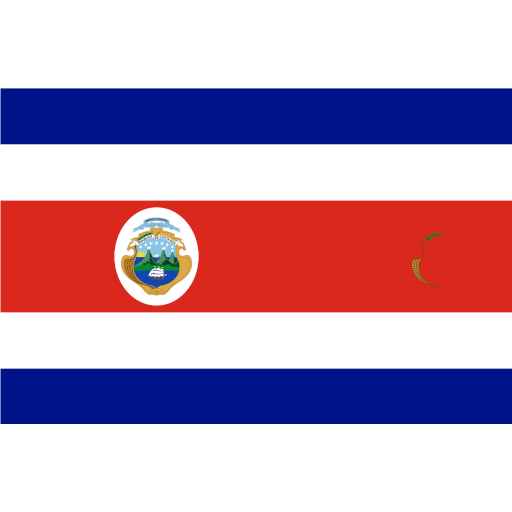In accordance with the Law on Income Tax, [in Spanish: Ley del Impuesto Sobre la Renta] (LISR), individuals and corporations are required to pay Income Tax, [in Spanish: ISR], in the following scenarios:
- Residents in Mexico
- Residents abroad who have Permanent Establishment.
- Residents abroad, with respect to income from a source of wealth located in national territory.
Who are obligated to file an annual tax return?
Individuals are required to file an annual tax return if they obtained income from:
Wages and Earnings
- Those whose income exceeds $400,000 pesos. If you worked for two or more employers in the same year, even if it does not exceed $400,000 pesos, or if you stopped rendering services before December 31, 2024.
- Those whose wages originate from abroad or have obtained income from severance or retirement, or have income other than wages.
Professional Services
- Taxpayers who earn income independently and issue invoices for their fees.
Entrepreneurial activities such as:
- Technology platforms, border regions, or a Fiscal Information Registration Number, [in Spanish: Régimen Incorporación Fiscal] (RIF), with a profit margin.
Other income such as:
- Interest, dividends, disposal of property, (movable and immovable property), or through leasing.
Moreover, those who are in special tax regimes such as the Simplified Tax Regime, [in Spanish: Régimen Simplificado de Confianza] for entrepreneurial activities, professional services, or for the granting of the temporary use or enjoyment of goods.
Informative Data
- If you received loans, donations (between spouses, parents/children), and prizes, as long as they exceed 600,000 pesos per year.
- When the total income obtained in the fiscal year exceeds 500,000 pesos, you must report inheritances, legacies, and prizes.
- If you conducted a sale of a house residence and used the exempt amount granted by law.
Personal deductions
Personal deductions are expenses that taxpayers can subtract from their taxable income when filing their annual tax return. This allows a reduction of the amount on which the Income Tax is calculated, as long as the corresponding requirements are met; which may reduce the sum payable or generate a credit balance. These expenses may include, among others:
Medical Expenses: Medical, dental, psychologist, nutritionist, clinical analysis, prosthesis, rehabilitation devices, and nursing fees – Not medication.
Funeral Expenses: Provided that they do not exceed the General Minimum Wage, [in Spanish: SMG], for the year. These expenses only apply to the personal expenses of the spouse, common-law spouse, or ascendants and direct descendants.
Donations: It can be to the federation, federal entities, and municipalities, as well as to institutions authorized by the Tax Administration Service [in Spanish: SAT]. The amount must not exceed 7% of the cumulative income of the previous year for institutions and 4% for federal entities.
Actual interest actually paid on mortgage loans for housing: Actual interest paid for the acquisition of a home. These must be contracted with Mexican financial institutions, and the amount of the loan granted shall not exceed 750 thousand Inflation-Indexed Investment Units [in Spanish: UDIS). (Interest paid (-) inflation = actual interest).
Complementary retirement contributions: Contributions made to a complementary retirement contributions sub-account – AFORE [in English: Retirement Funds Management], personal retirement plans - PPR, or contributions to special or personal savings accounts - maximum 152,000 per year.
The amount of the deduction will be up to 10% of the taxpayer's cumulative income for the year, without exceeding five general minimum wages per year.
Medical insurance premiums: Only when the beneficiary is the taxpayer, spouse, or person that lives with the common-law spouse, or ascendants and direct descendants.
Mandatory school transportation: Applies as long as it is mandated by the school and the expense is paid by a direct descendant.
Tuition at private schools: The amount paid by each student for tuition at private educational institutions must not exceed the annual deduction limits for each level of education, as per the following limits: Preschool: $14,200, Elementary: $12,900, Junior High: $19,900, Technical professional: $17,100, High school or its equivalent: $24,500.
Requirements for personal deductions
- They must be paid electronically
- The expenses must be incurred in Mexico
- They must comply with all Digital Tax Receipt requirements [in Spanish: CFDI].
- They must indicate the use of the Digital Tax Receipt depending on the activity for which the expense will be applied.
- The payment method code must be indicated
Earnings from the annual tax return
If as a result of filing your annual tax return you obtained a credit balance, you may opt for:
- An automatic tax refund: A credit balance that is equal to or less than 10 thousand pesos (password). A balance greater than 10 thousand pesos (electronic signature). A refund to the taxpayer's bank account as provided in the annual return (18-digit CLABE) [in English: Standardized Bank Code].
- Tax offset: The positive tax balance may be applied against future taxes to be paid in the annual tax return or monthly payment, when appropriate.
If as a result of filing your annual tax return you obtained a balance due, you may opt for:
- A one-time payment up to April 30, 2025: A registration code must be generated at the time of filing the annual tax return and must be paid from the taxpayer's Mexican banking portal.
- Pay in up to 6 installments: The return must be filed in a timely manner (in April 2025). The payment of the first installment must be carried out no later than April 30, with the payments being made from the taxpayer's account; and the last installment must be paid by September 30, 2025. Failure to pay opportunely will result in surcharges which will be charged to the taxpayer.
J.A. DEL RÍO offers a wide array of specialized consulting services to assist you with these and other matters, in order to ensure that your project complies with the applicable characteristics contained in this agreement.
If you have any questions, J.A. DEL RÍO can provide you with our experts to advise in matters concerning compliance with your legal and tax obligations. Once again, please let us know if we may be of any further assistance to you at: contacto@jadelrio.com.























